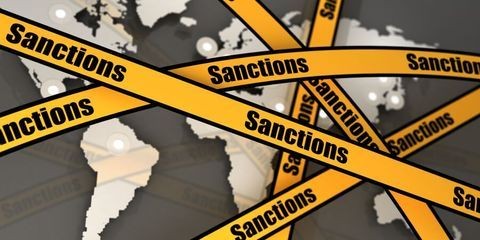New York Legislature Passes Ban on Non-Compete Agreements
Client Alert | 3 min read | 07.13.23
On June 20, 2023, the New York State Assembly passed a sweeping bill that, if signed into law by Governor Hochul, will effectively ban future non-compete agreements. If enacted, New York would join California, North Dakota, Oklahoma, and Minnesota in implementing a complete prohibition on non-compete agreements. As of this writing, the bill has not yet been delivered to the Governor.
The bill, which was passed after the conclusion of the 2023 legislative session, amends the New York Labor Law to add a new Section 191-d, which would prohibit employers and related persons and entities from seeking, requiring, demanding, or accepting a non-compete agreement from any covered individual. Section 191-d would also render void every contract to the extent “anyone is restrained from engaging in a lawful profession, trade, or business of any kind.” The bill would become effective 30 days after the Governor signs it, but would only apply prospectively to agreements entered into or modified on or after it becomes effective.
Definitions
The bill defines a non-compete agreement as “any agreement, or clause contained in any agreement, between an employer and a covered individual that prohibits or restricts such covered individual from obtaining employment, after the conclusion of employment with the employer included as a party to the agreement.” A covered individual is defined as any “person who, whether or not employed under a contract of employment, performs work or services for another person on such terms and conditions that they are, in relation to that other person, in a position of economic dependence on, and under an obligation to perform duties for, that other person.” Notably, this definition includes not only employees, but also independent contractors.
Exceptions
Despite the broad scope of this prohibition, the bill provides a carveout for “fixed term of service,” non-disclosure, and/or client non-solicitation agreements, provided that such agreement does not otherwise restrict competition in violation of Section 191-d.
Enforcement
The bill contains a private right of action, with mandatory liquidated damages of up to $10,000. A covered individual may bring a civil action within two years of the later of the date when:
- the non-compete was signed;
- the covered individual learned of the non-compete;
- the employment or contractual relationship is terminated, or
- the employer takes any step to enforce the non-compete.
Open Questions and Ambiguities
The bill leaves many questions unanswered. For example, it does not address the validity of employee non-solicitation agreements. Nor does the bill explicitly address other practices, such as garden leave or paid notice periods. The definition of “non-compete agreement,” however, appears to apply only to restrictions occurring after the employment relationship ends, leaving open the possibility that these practices would not fall under the scope of the law. The bill also does not create an explicit exception for non-compete agreements in the context of the sale of a business. But the definition of a “covered individual” appears to apply only to individuals performing work or services for an organization who are in a position of economic dependence on that organization. This definition could exclude non-compete agreements used in a sale-of-business context, in which the individuals or entities do not have an existing work relationship.
Next Steps
Employers should begin preparing for the possibility that non-compete agreements may be prohibited in New York State, and should consider consulting counsel before requiring employees or independent contractors to sign any restrictive covenant. Crowell & Moring attorneys will be following developments on this issue closely.
Insights
Client Alert | 14 min read | 05.03.24
On April 24, 2024, President Biden signed into law the National Security Supplemental fiscal package, which includes significant new sanctions and export controls authorities. Although the U.S. foreign aid commitments for Ukraine, Israel, and Taiwan headline the new law, it also (1) expands the statute of limitations for U.S. sanctions violations; (2) includes new authorities for the President to coordinate sanctions efforts with the European Union and the United Kingdom; (3) expands sanctions and export controls on Iran (including some targeted at Chinese financial institutions); and (4) includes new sanctions authorities targeting terror groups.
Client Alert | 3 min read | 05.03.24
EEOC’s New “Enforcement Guidance on Harassment in the Workplace” Hits Hot-Button Issues
Client Alert | 11 min read | 05.03.24
FDA Moves Forward on Laboratory Developed Tests while Stakeholders and Congress Weigh Next Steps
Client Alert | 1 min read | 05.03.24








